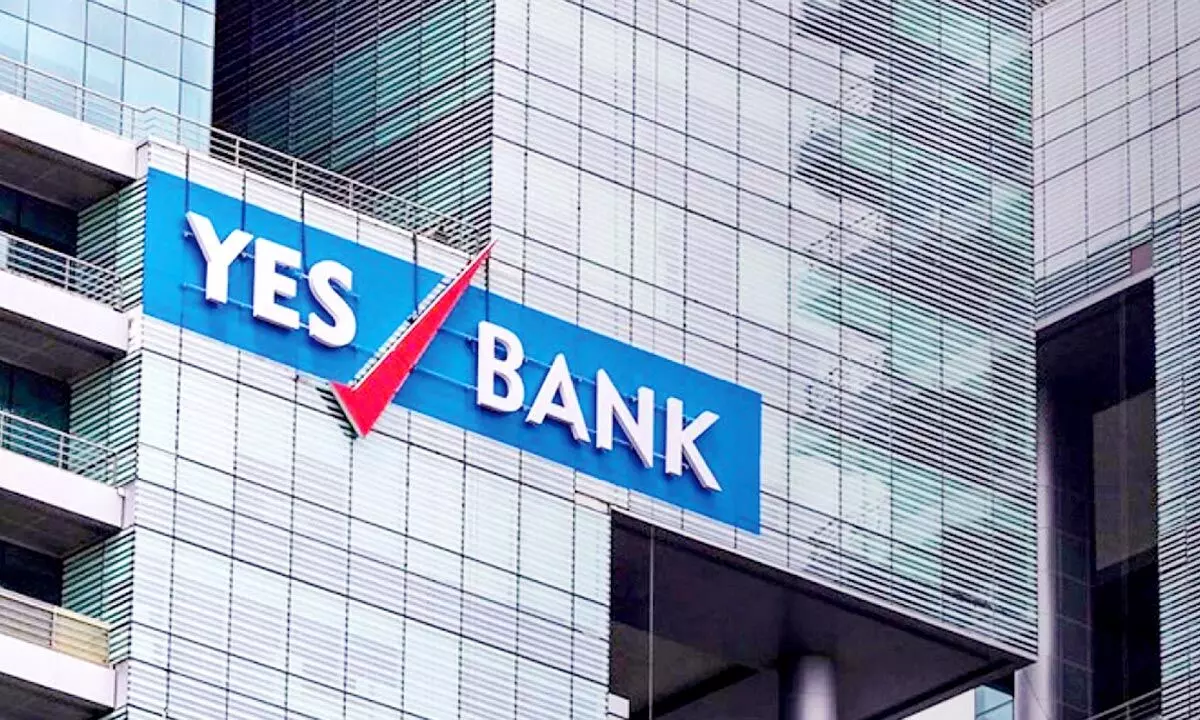SBI may retain its stake in Yes Bank
Lock-in period set by RBI as part of Yes Bank’s restructuring plan expired on March 6; With 26.14% stake, SBI is the largest single shareholder in the rescued lender
image for illustrative purpose

- SBI, other banks took position in Yes Bank to rescue it
- As per reconstruction plan, SBI can’t reduce its holding below 26% during 3-yr lock-in period
- ICICI Bank, Axis Bank, IDFC FIRST Bank also rescued Yes Bank in March 2020
- Lock-in period required these lenders to hold on to 75% in Yes Bank
Mumbai: Even as the three-year lock-in period comes to an end on Monday (March 6), India’s largest lender, State Bank of India (SBI), is unlikely to divest its stake in Yes Bank, feel experts. The lock-in period was imposed by the RBI as a part of Yes Bank’s restructuring.
However, another section of analysts believes that SBI and other lenders may think of exiting once the financial result of the fourth quarter of Yes Bank declared. The percentage of equity dilution that the bank intends to do will have to be placed before the RBI in due course. SBI holds 26.14 per cent stake in Yes Bank as of December 31 and is the largest single shareholder in the rescued lender. Talking to Bizz Buzz, Hemendra Hazari, a noted banking analyst, says: “SBI unlikely to divest because if it divests investor and depositor may lose confidence in Yes Bank.”
As per the reconstruction plan, SBI can’t reduce its holding below 26 per cent before completion of three years from the date of infusion of the capital. SBI, along with other lenders including ICICI Bank, Axis Bank, IDFC FIRST Bank, Kotak Mahindra Bank, Housing Development Finance Corp had stepped in to rescue Yes Bank in March 2020, after the central bank superseded the bank's board. Then, the reconstructure scheme was put in place by the RBI, which required these lenders to hold on to around 75 per cent of the shares acquired for three years. A similar restriction was placed on other existing shareholders.
Avinash Gorakshkar, Head (Research) at Profitmart Securities, says: “SBI and other banks took position in Yes Bank to bail it out from the crisis. In last three years, Yes Bank's financial condition has improved and there is long way for the bank to become a profit-making bank.”
So, SBI, ICICI Bank, HDFC Bank, IDFC First Bank may not offload their entire stake at random, he said. In fact, I am expecting them to wait for the Q4 results of the Yes Bank. Only after that, they may take any decision with regard to profit booking. Because keeping their stake unchanged after the end of lock-in period might spark fresh buying in Yes Bank shares, he added.
ICICI Bank, Axis Bank, IDFC FIRST Bank held 2.61 per cent, 1.57 per cent and one per cent stakes respectively, as of December-end. State-owned Life Insurance Corporation (LIC) holds 4.34 per cent, while HDFC holds 3.48 per cent. The board of SBI is likely to meet shortly to decide on the future of its stake in Yes Bank, following which a proposal will be sent to the central bank.
SBI unlikely to divest because if it divests, investor and depositor may lose confidence in Yes Bank, Hemendra Hazari, a noted banking analyst, tells Bizz Buzz

